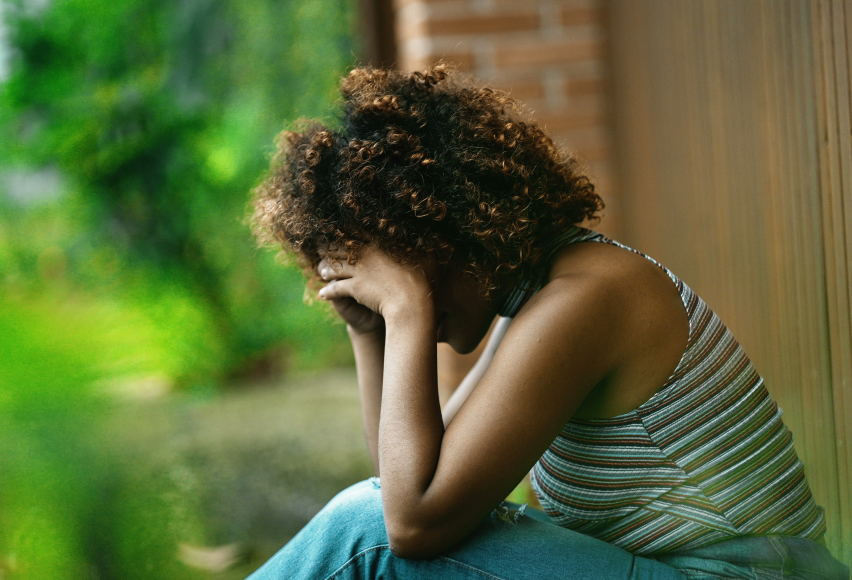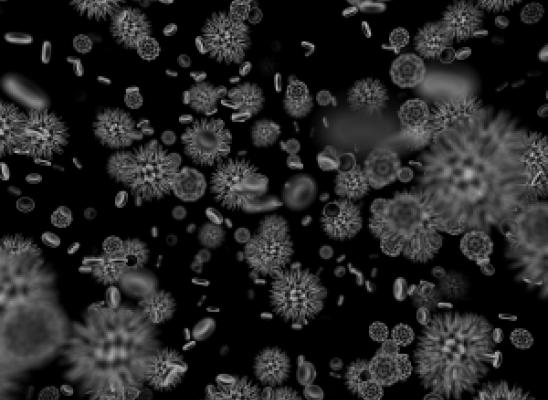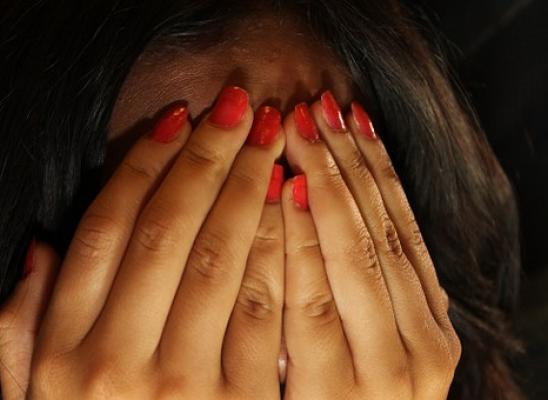Hair Loss, Identity, and Grief: The Unspoken Emotional Toll of Trichotillomania

Online test
Find out the severity of your symptoms with this free online test
When you think about trichotillomania, what first comes to mind is probably the hair loss – the bald patches, the missing eyelashes or thinning eyebrows. But the impact of trichotillomania runs much deeper. There’s an emotional toll that comes along with the hair loss that often goes unspoken.
Grief might not be the first word that comes to mind, but for many living with trich, it can feel like loss. It’s like mourning the loss of not just hair, but what hair symbolizes and the meaning it holds. Hair is an integral part of one’s identity and self-expression, and for many, a source of self-confidence. When hair loss occurs, it’s not just strands of hair that are lost. It’s pieces of who we are, and how we see ourselves.
If you’ve felt that quiet sadness, you’re not alone.
The Mourning Behind the Mirror
Losing hair is not just about aesthetics. Hair holds meaning. It’s about watching something important to you change in a way you didn’t choose or felt powerless to stop. For some, it’s feeling like you’ve betrayed yourself in a profound way. For others, there’s a loss of perceived femininity or masculinity, or a disconnect from a previous sense of self. You might look in the mirror and barely recognize the person staring back.
Hair has cultural and social significance as well and plays a role in both how others perceive us and even how we perceive ourselves. For many, it’s a symbol of identity, gender expression, health, and attractiveness. Losing it, especially when it feels like it’s happening at your own hands, can feel confusing and devastating.
Trichotillomania and the impact of hair loss can increase the risk of mental health issues including anxiety or depression as well as negatively impact one’s sense of identity and self-image. It can also lead to social isolation due to fears of being judged or misunderstood by others.
Why Grieving Matters
Grief isn’t an emotion reserved for the "big things" like death or divorce. Grief often follows any meaningful loss. And grieving your hair loss and all that that entails is valid. In fact, it’s necessary.
That might sound counterintuitive but allowing the grieving process is important to healing. Left unacknowledged, grief can become unwanted emotional baggage, weighing you down and impeding the path to healing. But grief can be hard to talk about. No one tells us how to do that so you might find yourself trying to minimize it – “It’s just some lashes. They’ll grow back.” or even joke about it – “That’s what brow pencil is for”, but behind the façade, the hurt remains.
Allowing yourself to grieve is an important part of the healing process.
Tips for Navigating Grief and Identity Shifts
If this resonates with you, you’re already doing something brave: facing it. Here are some ways you can start to explore and honor your experience:
1. Name the Loss
Sometimes just putting what you’re feeling into words can be powerful and empowering. Naming it turns the experience from a vague hurt into something that can be defined and addressed.
2. Practice Acceptance
You may feel a lot of different emotions related to your hair loss- anger, sadness, shame, guilt, or even all of them at once. And they’re all valid. Emotions are not “right” or “wrong”, even if they don’t seem to make sense. And there’s no “timetable” for working through your feelings. Allow yourself to feel what you feel and allow grieving the time and space it deserves.
3. Explore and Reframe Your Identity
Hair loss can feel like it robs you of how you once saw yourself, but it can also open the door to new ways of seeing yourself and what makes you uniquely you.
Is it your creativity? That keen sense of humor? Your immense kindness and compassion?
For many people living with trichotillomania, learning to reframe their self-image, finding beauty in their strength rather than their appearance is healing and empowering. They learn to prioritize inner qualities, like kindness or creativity, over external appearance. Spend time reconnecting with parts of yourself that have nothing to do with appearance. Who you are runs so much deeper.
Reframing how you see yourself doesn’t erase the grief. It exists alongside it as you heal.
4. Practice Self-Care
Taking care of you and practicing small acts of self-care can be grounding and healing for both body and spirit. They reinforce the idea that you deserve kindness and gentle care. Some ways to care for yourself might be:
- Getting a massage
- Lighting a candle during stressful moments
- Listening to soothing music
- Taking a quiet walk, stopping to take in the beauty surrounding you.
5. Connect with Others
Finding others who just “get it” can be a relief and a comfort. Whether it’s an online forum, a support group, or even a friend who’s been where you are, connections like that remind you that you are not alone.
6. Redefine Progress
It’s tempting to see progress in stark terms of symptom reduction and “no pulling." But progress doesn’t happen in linear fashion and is measured more in small subtle shifts, not just in symptom reduction but also in functional improvement. Progress can also look like:
- setting a boundary
- speaking kindly to yourself when you make a mistake instead of berating yourself
- accepting a social invitation
Moving Forward
Hair loss from trichotillomania isn’t just a cosmetic issue. It’s an emotional journey - mourning what was, and reimagining what can still be. Remember that your feelings are valid. Your identity is still whole, even when it feels fractured. Be gentle with yourself. You’re doing important work. And most of all, remember that healing is possible.
References
1. Death, B. (2024, August 1). Me & trichotillomania. Befriending Death | Substack. https://lovealekz.substack.com/p/me-and-trichotillomania?utm_campaign=post&utm_medium=web
2. Dhami L. (2021). Psychology of Hair Loss Patients and Importance of Counseling. Indian journal of plastic surgery : official publication of the Association of Plastic Surgeons of India, 54(4), 411–415. https://pmc.ncbi.nlm.nih.gov/articles/PMC8719979/
3. Vara, R. (2025, February 5). Understanding Hair Loss In People With Trichotillomania. The Treatment Rooms London. https://www.treatmentroomslondon.com/hair/hair-loss-and-trichotillomania/
Online test
Find out the severity of your symptoms with this free online test
Start your journey with TrichStop
Take control of your life and find freedom from hair pulling through professional therapy and evidence-based behavioral techniques.
Start Now



